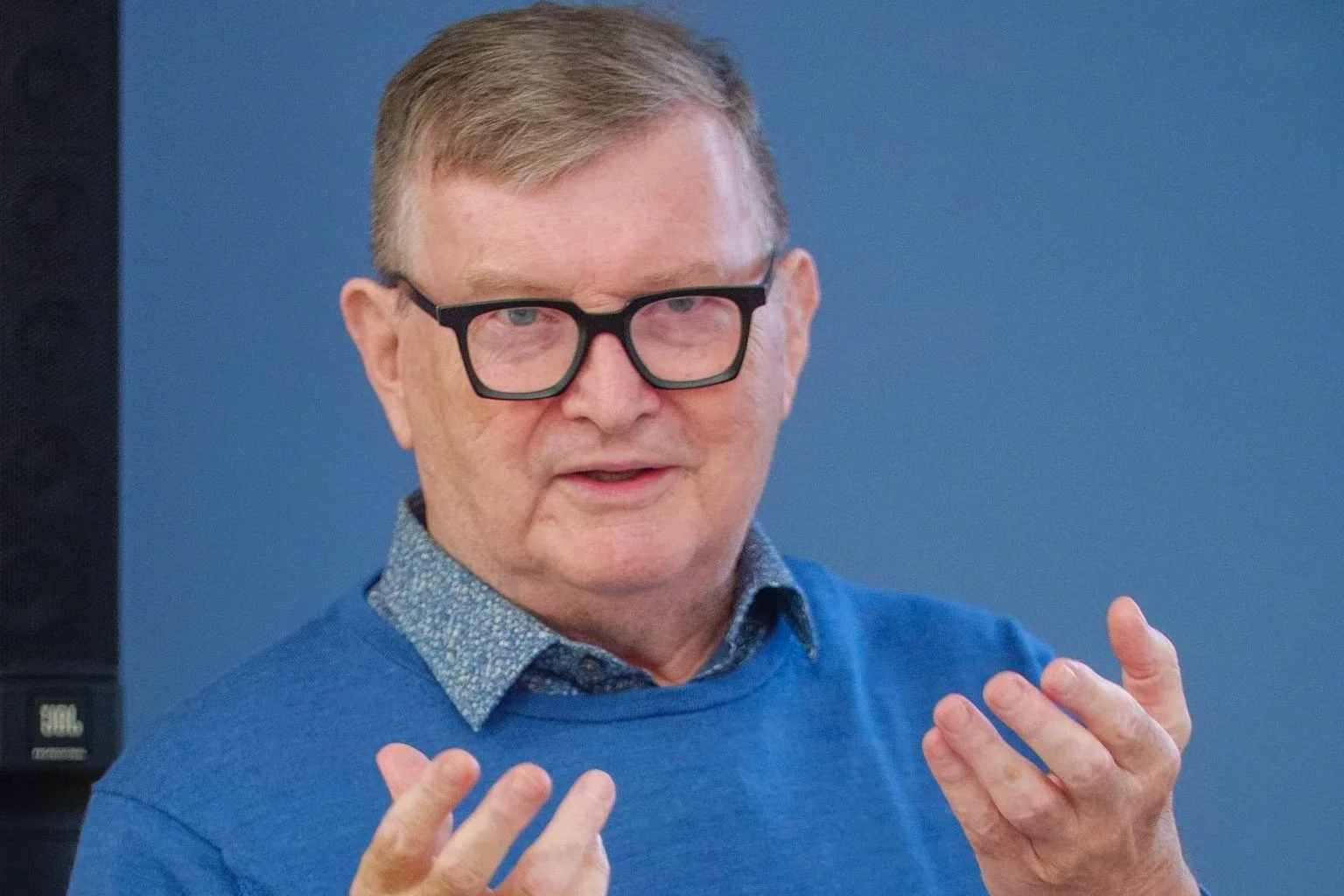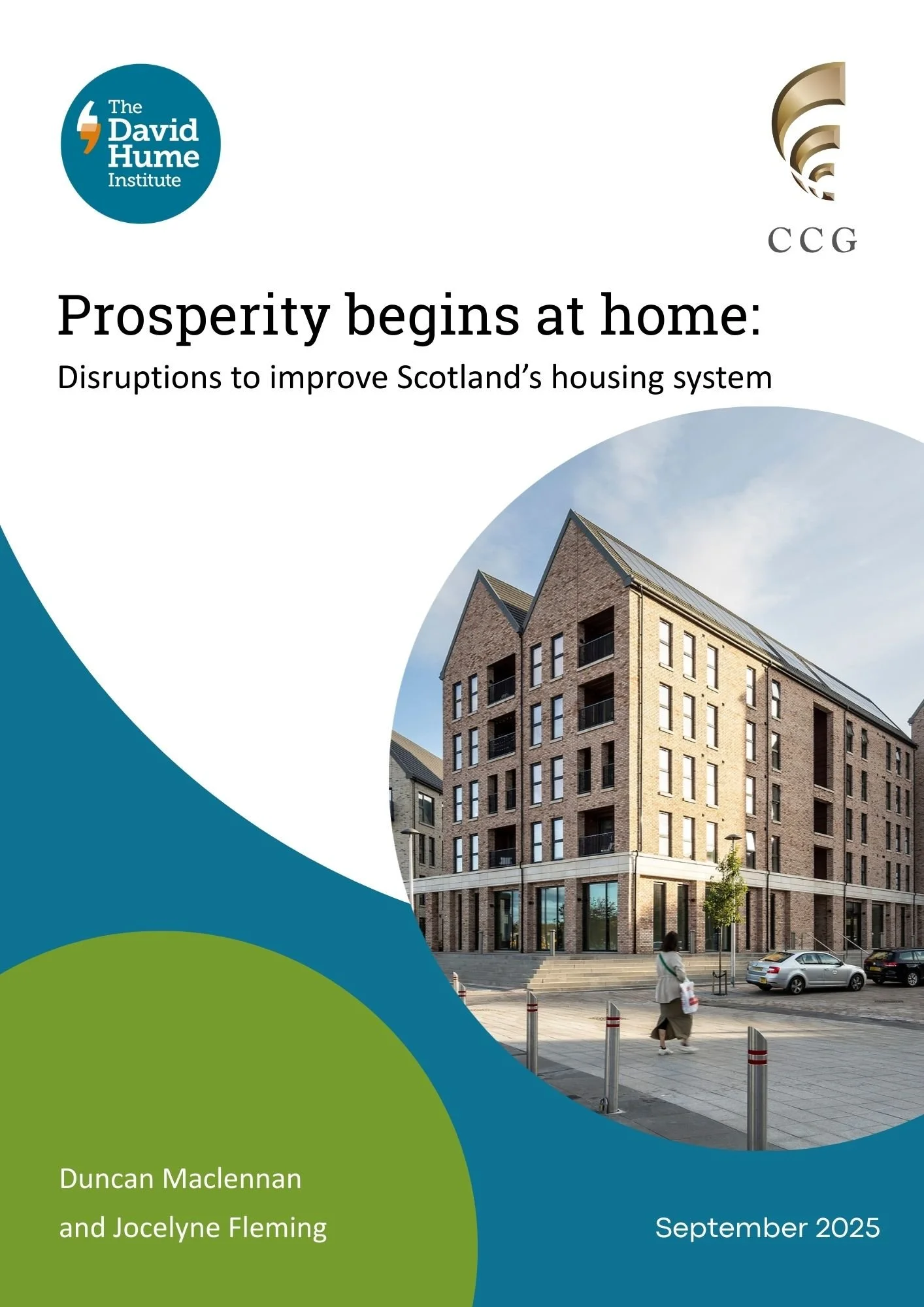Research Launch: Prosperity Begins at Home
Catch up with the launch of research from Professor Duncan Maclennan, Prosperity begins at home.
Recorded: 29th September 2025
A major new report, commissioned by the David Hume Institute, authored by Professor Duncan Maclennan CBE calls for bold action on housing to secure long-term economic growth and reduce inequality across Scotland.
The in-depth research by global housing expert, Professor Maclennan, draws on interviews and roundtable discussions from organisations and individuals involved across the Scottish Housing system.
The study, Prosperity Begins at Home: Disruptions to Improve Scotland’s Housing System, calls for bold, sweeping policy reforms.
It argues that housing has been wrongly treated as a narrow social issue, and advocates for an urgent shift in understanding, recognising that housing is critical economic infrastructure shaping jobs, wealth, climate progress, and wellbeing.
The report provides a comprehensive analysis of how Scotland’s housing system must adapt to meet twenty-first century challenges. It presents evidence that inadequate housing supply, poor affordability and weak spatial planning are holding back productivity, increasing inequality and exacerbating regional disparities.
The event to launch the research was chaired by Eli Harji from the Scottish Federation of Housing Associations (SFHA) and there were reflections from:
Jane Wood, Homes for Scotland
Ken Ross, RDRL Ltd
Calum Murray, CCG (Scotland) Ltd
Callum Chomczuk, Chartered Institute of Housing Scotland
Ann Leslie, Lar Housing Trust
Catch up with the discussion below.
The Care Economy with Tim Jackson
Catch up with the recording of Professor Tim Jackson in conversation with Sarah Ivory at the EICC
The David Hume Institute, in partnership with EICC Live, were delighted to host Professor Tim Jackson in conversation with Dr Sarah Birrell Ivory, discussing The Care Economy.
Tim discussed his new book The Care Economy which asks how we arrived at a place where our economy is so disfunctional. Why does the economy not value the things that help prosperity and if we valued care differently how might this change what is prioritised?
How did we arrive in this dysfunctional place? And what can we do to change things? What would it mean to take health seriously as a societal goal? What would it take to adopt care as an organising principle in the economy? All this and more in another fascinating DHI event.
About the speakers:
Professor Tim Jackson is an ecological economist and writer. Since 2016 he has been Director of the Centre for the Understanding of Sustainable Prosperity (CUSP), a multi-displinary research centre funded by the ESRC. Tim has been at the forefront of international debates on sustainability for three decades and has worked closely with the UK Government, the United Nations, the European Commission, numerous NGOs, private companies and foundations to bring economic and social science research into sustainability.
In 2016, Tim was awarded the Hillary Laureate for exceptional international leadership in sustainability.
Tim is a Fellow of the Royal Society for the Arts, the Academy of Social Sciences and the Belgian Royal Academy of Science. In addition to his academic work, he is an award-winning dramatist with numerous radio-writing credits for the BBC.
His latest book The Care Economy was published in February 2025.
Dr Sarah Birrell Ivory is an experienced academic, an award-winning lecturer, an Oxford University Press author, a passionate executive educator, and a regular commentator and keynote speaker.
Sarah was an Associate Professor in Climate Change and Business Strategy at the University of Edinburgh Business School (UEBS), a Fellow of the Higher Education Academy (FHEA), and a Chartered Management and Business Educator (CMBE). She has held positions including Director of the Business School's Centre for Business, Climate Change and Sustainability, Chair of the British Academy of Management Sustainable and Responsible Business Special Interest Group (SIG), visiting Professor at Melbourne Business School, and elected non-professorial position on the University of Edinburgh Senatus Academicus.
Sarah currently describes herself as a recovering academic and is focused on writing fiction.





